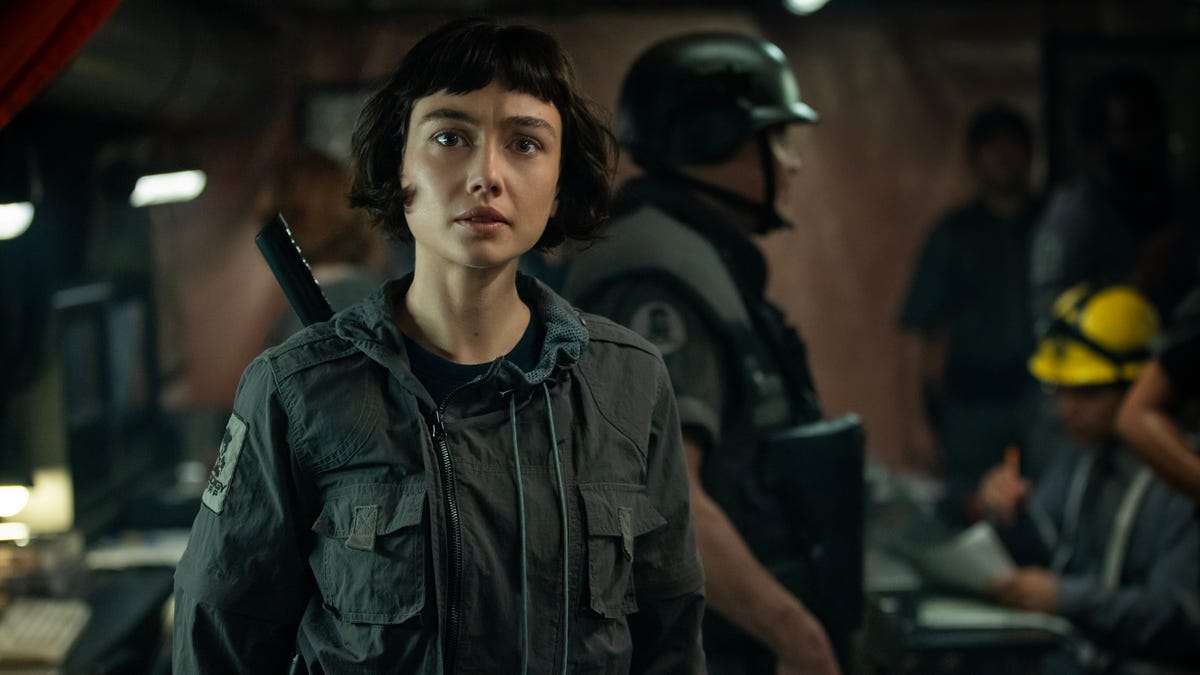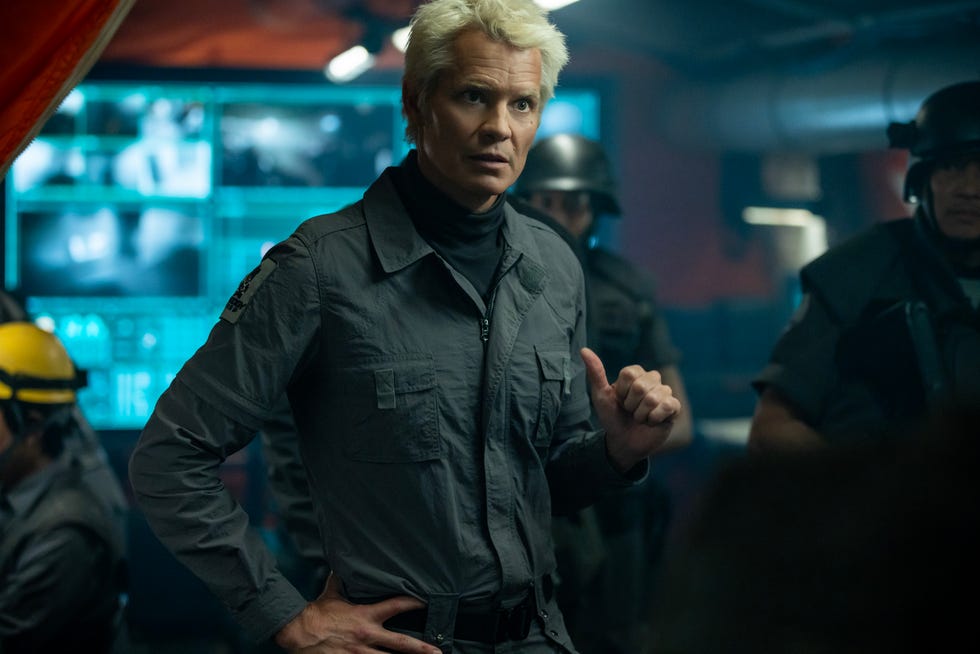<em>Alien: Earth</em> Episode 1 Recap


"Which technology prevails will determine what corporation rules the universe." These ominous words, illuminated onscreen in a familiar green retro-digital font, set the table for Alien: Earth, the first-ever television show in the Alien franchise. Where Ridley Scott brutally suggested a dystopian corporatocracy in his 1979 classic Alien, that commentary is the main thrust of Fargo and Legion creator Noah Hawley's latest, a hybrid sci-fi epic and taut horror-thriller with all the makings of a TV masterpiece in the making.
Bursting out of the proverbial chest of Disney-owned Fox, Alien: Earth—which aired this Tuesday night on FX and streaming on Hulu—takes place on, where else, Earth, albeit mostly inside crashed ship sites and scenic (and isolated) remote islands. The premiere episode, "Neverland," opens two years before Sigourney Weaver wakes on the Nostromo. Our protagonist is Wendy (an ethereal and wide-eyed Sydney Chandler), an unusual young girl—and I really do mean girl.
In this nightmare of corporate feudalism, start-up Prodigy has harnessed a breakthrough: "hybrids," androids who possess the consciousness and memories of formerly living people. Adhering to the franchise's anti-capitalist heritage, Prodigy's barefoot trillionaire CEO Boy Kavalier (Samuel Blenkin) has chosen sick children to pilot his ghastly experiment. The first of Prodigy's "Lost Boys" is Wendy, a cancer-stricken child whose new adult body has superhuman capabilities. For now, the purpose of hybrids like Wendy are shrouded in mystery—all good corporate secrets are—but it's not hard to believe Prodigy sees endless quarterly growth in their potential. A dozen allusions to Peter Pan communicate the sinister intent of Prodigy (while not-so-subtly promoting the fact that Peter Pan is streaming on Disney+).
There's a lot going on in Alien: Earth, even if there isn't a whole ton of plot taking place. Still, if you've not seen a single second of the past few Alien movies, Alien: Earth contorts itself to make sure you know what its dark world is all about. Here's our breakdown of all that goes down in the premiere.
All Aboard the USCSS MaginotDuring World War II, the "Maginot Line" was a line of fortification built by France to protect its borders from Germany. It was named after André Maginot, the French Minister of War, and was meant to prevent Nazis from invading. Although it withstood ground attacks, it wasn't strong enough to keep Nazis away forever, and Germany eventually invaded through the Netherlands. These days, a Maginot Line is a metaphor for extensive (and expensive) efforts that instill a false sense of security.

Timothy Olyphant has a major supporting role as Kirsch, a synthetic who mentors the "Lost Boys" and answers to Prodigy’s Boy Kavalier.
After the demise of the Maginot, we zip back to Earth where a young girl, ill with cancer, is about to die. Kind of. She's a young girl under the care of Prodigy, with the aforementioned Boy Kavalier overseeing her last few minutes in her old body. There's also Kirsh, a synthetic loyal to Kavalier. He's played by a nearly unrecognizable Timothy Olyphant, whose Sting-like blonde hair and hardened scowl give him the aura of a '90s cyberpunk villain.
The young girl, later named Wendy (again, it's Peter Pan), is the first in Prodigy's cutting-edge hybrid experimentation. The process is successful, and after some time when Wendy has grown accustomed to her new "older" body (now Chandler in the role), more sick children join the inner circle in their own synthetic bodies. But they're still kids at heart, if they still have those.
As the Maginot makes landfall in densely-populated New Siam in Thailand, Wendy spots her brother CJ (Alex Lawther) as part of the search and rescue efforts. Eager to reunite with her brother, who has presumed his sister dead but still misses her—see the way Ice Age brings them close while being apart—Wendy urges Boy Kavalier to let her get involved at the crash site. After all: They're more human than human. "We're fast, we're strong, we don't break," Wendy points out. "We can do it." It's a risky endeavor, however. Just how much do each of these Lost Boys cost? But Kavalier sees the bigger picture, and agrees to let his new toys test out exactly what they're made of.
LandfallHowever much Alien: Earth feels compromised in its themes by its Disney overlords, Hawley seizes his chance to show off his love for the Alien of his childhood. From his show's opening eight minutes that are an immaculate echo of Ridley Scott's Alien to the dimly-lit terror that calls to mind James Cameron's Aliens, Alien: Earth earns the franchise title it bears. It's also a proper work of Hawley's, a mish-mash of his Marvel masterpiece Legion and other prestige sci-fi of the last ten years, from Westworld to Severance.
"Neverland" is a long, labored inhalation for what is a simple inciting incident. Disaster strikes, and only a group of superhuman androids with the sugar-rush energy of children are the logical choice for a rescue mission. Little does anyone know for sure what awaits inside the ship. But this anemic plot is made up for by an abundance of atmosphere, direction, and a loving rendition of the Alien universe. For the first time ever, the Alien saga feels genuinely extended to the medium of television than it is rebooted or modernized for anyone too young to have ever discovered Aliens on cable.
In its kick-off episode, Alien: Earth may not offer more than the most essential who, what, where, and when—and certainly the "why" is how it plans to keep us interested until the finale. But as a whole new TV show that wears the menacing skin of a familiar franchise, Alien: Earth makes a great first impression, and that "Play Next Episode" button is harder to resist than a facehugger to the mug.
esquire





